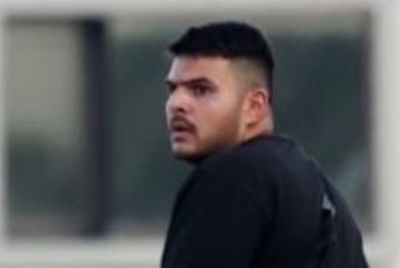Israeli Mother Of Hostages Torn Between Hope And Despair
When Israeli mother Maayan Zin scrolls through her phone, she sees her worst nightmare and her only glimmer of hope as she desperately awaits news of her two young daughters, believed held hostage by Hamas.
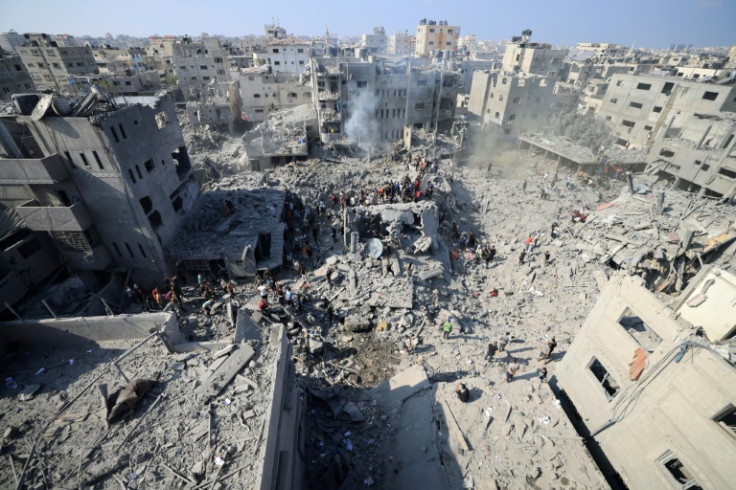
When Israeli mother Maayan Zin scrolls through her phone, she sees her worst nightmare and her only glimmer of hope as she desperately awaits news of her two young daughters, believed held hostage by Hamas.
Every day since the militant group's October 7 attack, she has re-watched a video of Hamas gunmen looming over her kneeling eight-year-old Ela, and a photo published online of 15-year-old Dafna inside Gaza.
They serve as the closest thing to proof-of-life Zin can get -- but also a reminder of the horrors she fears her children are enduring in the war-torn and besieged Palestinian territory.
The agony of having your children taken hostage is a "permanent rollercoaster", said the 52-year-old mother whose ex-husband, the father of the girls, was among those killed.
"Sometimes I imagine they rape them, they hit them," she said at her home in Kiryat Ono near Tel Aviv.
"A bit later I'll be more optimistic, telling myself that there are so many children over there, they must be treating them well."
Israel says at least 242 hostages were seized by Hamas militants who stormed out of Gaza nearly a month ago, killing 1,400, mostly civilians, in the deadliest ever attack on the nation.
The Israeli army has responded with a withering air, land and naval assault on Gaza which the Hamas-run health ministry says has killed more than 9,000 people, also mostly civilians.
Hamas has repeatedly said the Israeli strikes on Gaza have killed hostages, claims impossible to verify.
The last time Zin saw her daughters was when she hugged them goodbye and handed them over to their father Noam, her ex-husband, and his partner Dikla to stay at their home on the Nahal Oz kibbutz near Gaza.
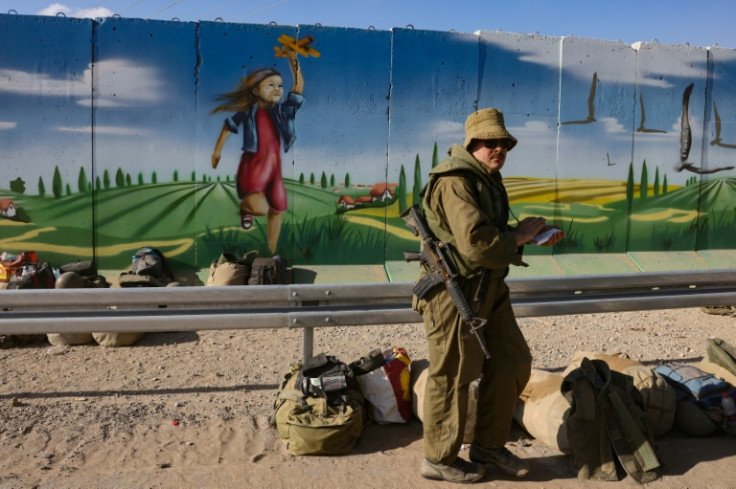
When the alarm sirens wailed to warn of incoming rockets on the morning of October 7, she messaged the father, who reassured her all was well.
That exchange is the last in the family's group chat.
The rest of the horrifying ordeal was documented by video.
Dikla's Facebook account started streaming a live video that showed two masked men with green Hamas headbands standing over a bloodied Noam as Ela looked around, her eyes widened in fear.
Relatives watched the stream in horror and began to contact each other in the comments section.
"Mum, I love you," wrote one of Dikla's children, who was away from the kibbutz at the time of the attack.
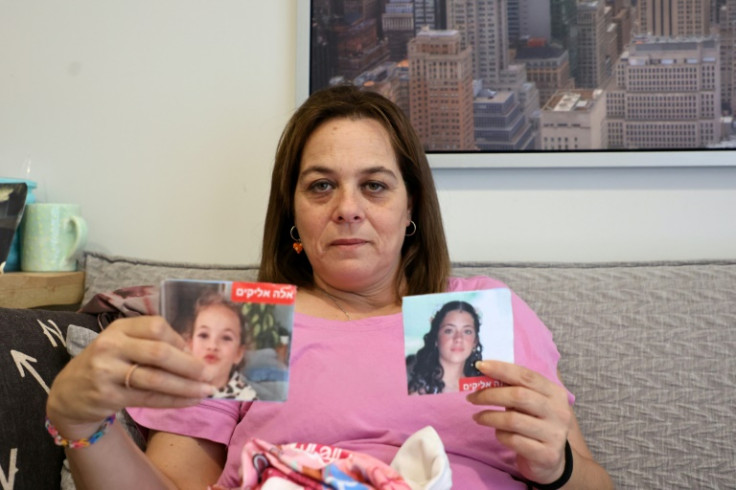
The bodies of Noam, Dikla and her son from another relationship, Tomer, were later found riddled with bullets in an open lot nearby after Israeli forces recaptured the kibbutz.
Before he died, 17-year-old Tomer was held at gunpoint "for many hours" and used by the Hamas attackers to lure out his holed-up neighbours by speaking in Hebrew, said Zin.
"They made him go into the houses to hunt down everyone," she said about neighbours who were hiding "in cupboards and in all the rooms".
Amid all the horrors, it was yet another ping on Zin's phone, one day after the attack, that offered a beacon of hope she has held on to ever since.
"I open WhatsApp and I see a photo of Dafna sitting in pyjamas on a mattress in Gaza," she said.
The picture had an Arabic caption saying it would be "better" if her teenage daughter wore Islamic dress, she said.
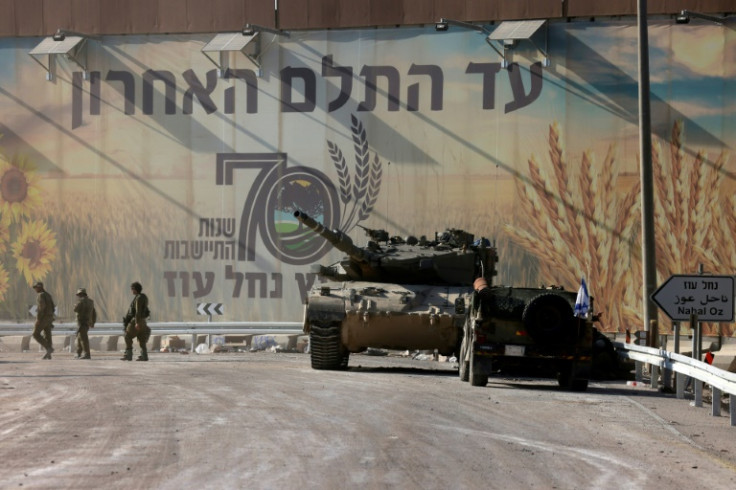
"I told myself that it's not possible, it's Photoshop," she said.
But she has heard nothing else since, so the image keeps her going even as she battles her worst fears.
In her imagination, she said, "I see them in tunnels, in lightless rooms, under the earth or staying in hospitals to avoid being bombed. I see them dead, injured."
Freeing the hostages has become a major war aim and a top concern for the angered and shocked Israeli public, even as the army has kept bombing Gaza.
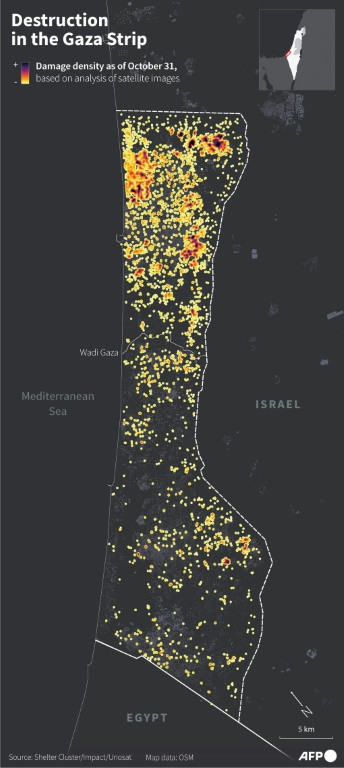
The militants have freed four captives and the army has rescued one, a soldier.
Hamas has said it is ready to free the other captives if Israel releases thousands of Palestinian prisoners, but Israel has not publicly voiced interest and ruled out a ceasefire.
Since her daughters were taken, Zin has slept clutching their pyjamas, inhaling the girls' lingering scent.
Every morning she jolts back to her phone to comb through Facebook, Telegram and WhatsApp for new images from Gaza or a message from the kidnappers.
She said she is stuck in a spiral of panic and hope, but is trying "not to explode", in case her daughters are returned to her, as she is now their only parent left.
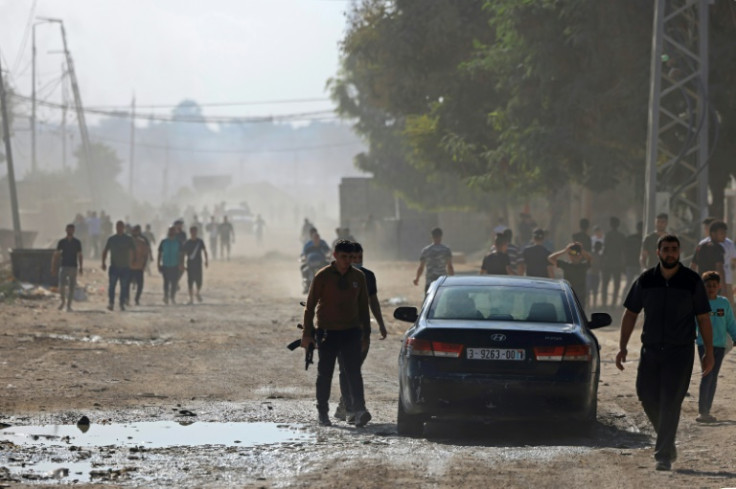
It might take "days, weeks, years, I don't know", she said, fearing her daughters may "come back different".
In the worst case, she said, "maybe they have killed my girls".
If she does see them again, Zin said she wants to hold both tight in her arms and "buy a big bed so we can sleep all three together".
"When I wake up from this nightmare, only then can I begin to dream."

© Copyright AFP 2025. All rights reserved.








